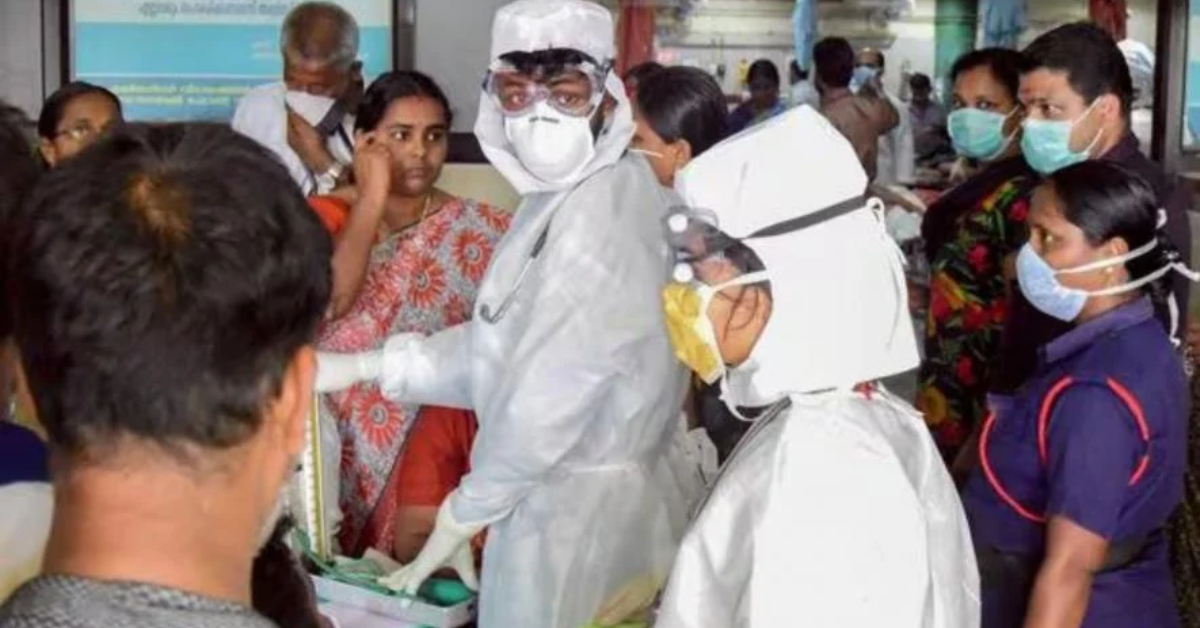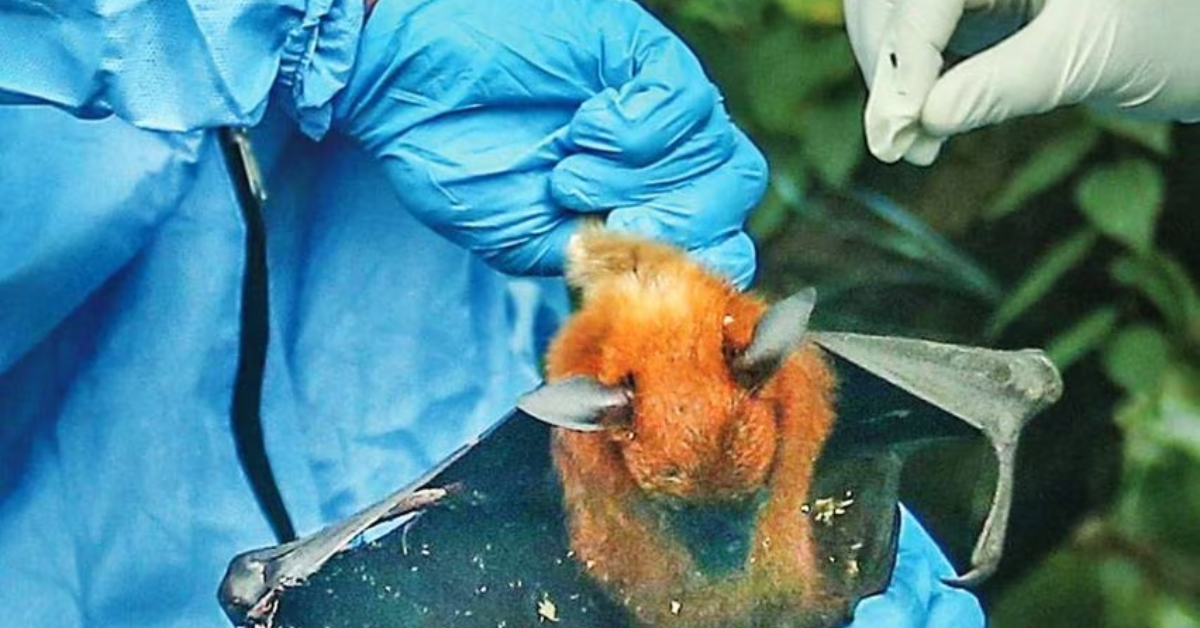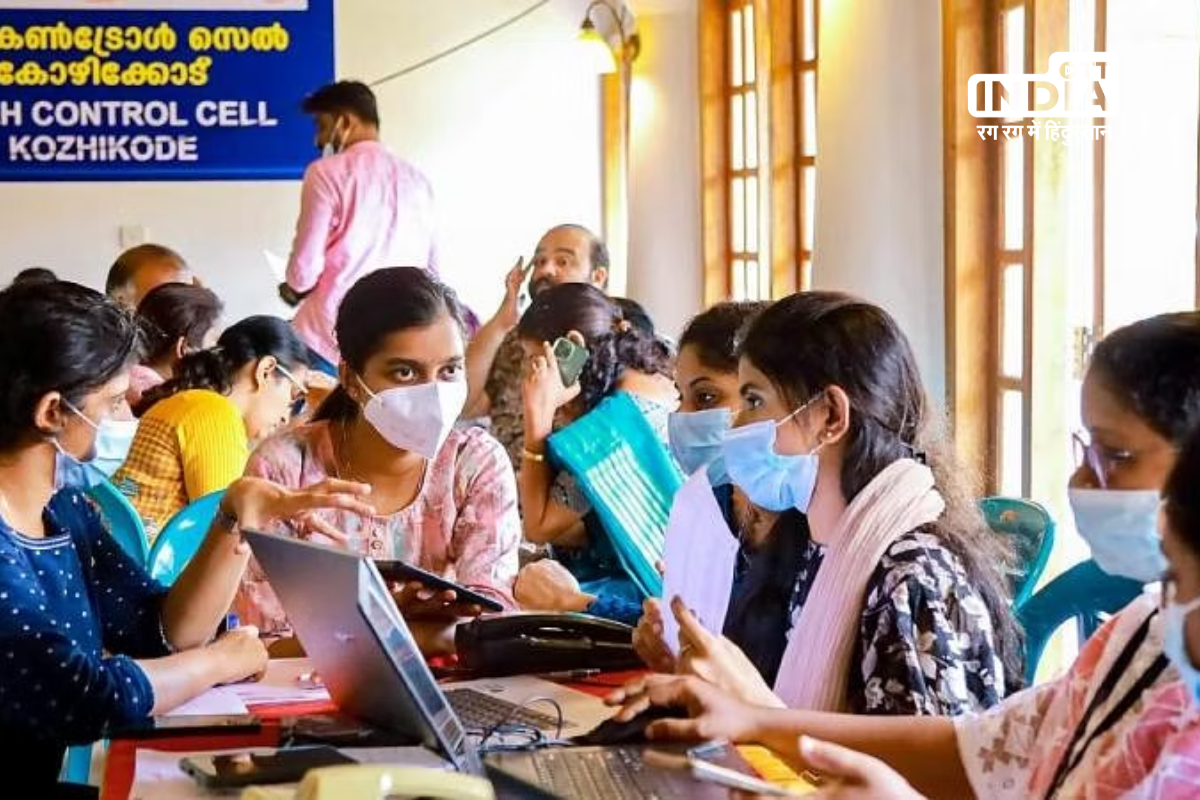Kerala Battling Nipah Outbreak: Containment Zones Erected, ICMR Provides Antibody
Kerala finds itself grappling with its fourth Nipah virus outbreak since 2018, a highly lethal pathogen for which no vaccine exists, with a mortality rate of up to 75% among those infected. The latest outbreak, centered in Kozhikode district, has prompted authorities to adopt containment zones reminiscent of COVID-19 measures.  This alarming situation arose after two fatalities were reported due to the brain-damaging Nipah virus on August 30 and September 11. This virus, known to cause respiratory distress and encephalitis, has put the health authorities on high alert, leading to stringent measures to identify and isolate high-risk contacts. Currently, five more patients infected with the Nipah virus are receiving treatment in local hospitals. The containment zones have been delineated within a five-kilometer radius around the residences of the two deceased individuals, a strategy aimed at preventing further transmission. Moreover, the state has taken the precautionary step of sending 11 additional samples to Pune's National Institute of Virology for testing, and thankfully, all results came back negative for the virus. In a bid to further contain the outbreak, samples from another 15 individuals on the high-risk contact list have also been dispatched for testing. To assist in managing the situation, a five-member team comprising experts from the National Centre for Disease Control, RML Hospital, and NIMHANS has been deployed to Kerala.
This alarming situation arose after two fatalities were reported due to the brain-damaging Nipah virus on August 30 and September 11. This virus, known to cause respiratory distress and encephalitis, has put the health authorities on high alert, leading to stringent measures to identify and isolate high-risk contacts. Currently, five more patients infected with the Nipah virus are receiving treatment in local hospitals. The containment zones have been delineated within a five-kilometer radius around the residences of the two deceased individuals, a strategy aimed at preventing further transmission. Moreover, the state has taken the precautionary step of sending 11 additional samples to Pune's National Institute of Virology for testing, and thankfully, all results came back negative for the virus. In a bid to further contain the outbreak, samples from another 15 individuals on the high-risk contact list have also been dispatched for testing. To assist in managing the situation, a five-member team comprising experts from the National Centre for Disease Control, RML Hospital, and NIMHANS has been deployed to Kerala.  Recognizing the severity of the situation, the Indian Council of Medical Research (ICMR) has responded to Kerala's request by delivering a monoclonal antibody. This antiviral treatment, while currently unproven in terms of clinical efficacy, represents the government's primary option for combating Nipah infections. The stability of this antiviral has been under discussion with a central expert committee, reflecting the urgency of the situation. Additionally, a mobile BSL-3 (Biosafety Level-3) laboratory has been dispatched to the outbreak area, enabling the timely testing of samples for the virus within the district itself. In a significant move, the Kerala government has decided to collect body-fluid samples from all individuals on the 'high-risk' contact list linked to the first Nipah virus victim, further intensifying efforts to prevent further spread. Furthermore, the state of Rajasthan has issued an alert to its medical officials in response to the Nipah cases reported in Kerala, highlighting the contagious nature of the virus and the need for vigilance in other regions. Also Read: Nipah Strikes Kerala: 5 Infected, 700 Contacts Traced, 77 High-Risk Cases Identified OTT India updates you with the latest news, The Country’s no.1 digital news platform OTT India, Keeps you updated with national, and international news from all around the world. For more such updates, download the OTT India app on your Android and IOS device.
Recognizing the severity of the situation, the Indian Council of Medical Research (ICMR) has responded to Kerala's request by delivering a monoclonal antibody. This antiviral treatment, while currently unproven in terms of clinical efficacy, represents the government's primary option for combating Nipah infections. The stability of this antiviral has been under discussion with a central expert committee, reflecting the urgency of the situation. Additionally, a mobile BSL-3 (Biosafety Level-3) laboratory has been dispatched to the outbreak area, enabling the timely testing of samples for the virus within the district itself. In a significant move, the Kerala government has decided to collect body-fluid samples from all individuals on the 'high-risk' contact list linked to the first Nipah virus victim, further intensifying efforts to prevent further spread. Furthermore, the state of Rajasthan has issued an alert to its medical officials in response to the Nipah cases reported in Kerala, highlighting the contagious nature of the virus and the need for vigilance in other regions. Also Read: Nipah Strikes Kerala: 5 Infected, 700 Contacts Traced, 77 High-Risk Cases Identified OTT India updates you with the latest news, The Country’s no.1 digital news platform OTT India, Keeps you updated with national, and international news from all around the world. For more such updates, download the OTT India app on your Android and IOS device.
 This alarming situation arose after two fatalities were reported due to the brain-damaging Nipah virus on August 30 and September 11. This virus, known to cause respiratory distress and encephalitis, has put the health authorities on high alert, leading to stringent measures to identify and isolate high-risk contacts. Currently, five more patients infected with the Nipah virus are receiving treatment in local hospitals. The containment zones have been delineated within a five-kilometer radius around the residences of the two deceased individuals, a strategy aimed at preventing further transmission. Moreover, the state has taken the precautionary step of sending 11 additional samples to Pune's National Institute of Virology for testing, and thankfully, all results came back negative for the virus. In a bid to further contain the outbreak, samples from another 15 individuals on the high-risk contact list have also been dispatched for testing. To assist in managing the situation, a five-member team comprising experts from the National Centre for Disease Control, RML Hospital, and NIMHANS has been deployed to Kerala.
This alarming situation arose after two fatalities were reported due to the brain-damaging Nipah virus on August 30 and September 11. This virus, known to cause respiratory distress and encephalitis, has put the health authorities on high alert, leading to stringent measures to identify and isolate high-risk contacts. Currently, five more patients infected with the Nipah virus are receiving treatment in local hospitals. The containment zones have been delineated within a five-kilometer radius around the residences of the two deceased individuals, a strategy aimed at preventing further transmission. Moreover, the state has taken the precautionary step of sending 11 additional samples to Pune's National Institute of Virology for testing, and thankfully, all results came back negative for the virus. In a bid to further contain the outbreak, samples from another 15 individuals on the high-risk contact list have also been dispatched for testing. To assist in managing the situation, a five-member team comprising experts from the National Centre for Disease Control, RML Hospital, and NIMHANS has been deployed to Kerala.  Recognizing the severity of the situation, the Indian Council of Medical Research (ICMR) has responded to Kerala's request by delivering a monoclonal antibody. This antiviral treatment, while currently unproven in terms of clinical efficacy, represents the government's primary option for combating Nipah infections. The stability of this antiviral has been under discussion with a central expert committee, reflecting the urgency of the situation. Additionally, a mobile BSL-3 (Biosafety Level-3) laboratory has been dispatched to the outbreak area, enabling the timely testing of samples for the virus within the district itself. In a significant move, the Kerala government has decided to collect body-fluid samples from all individuals on the 'high-risk' contact list linked to the first Nipah virus victim, further intensifying efforts to prevent further spread. Furthermore, the state of Rajasthan has issued an alert to its medical officials in response to the Nipah cases reported in Kerala, highlighting the contagious nature of the virus and the need for vigilance in other regions. Also Read: Nipah Strikes Kerala: 5 Infected, 700 Contacts Traced, 77 High-Risk Cases Identified OTT India updates you with the latest news, The Country’s no.1 digital news platform OTT India, Keeps you updated with national, and international news from all around the world. For more such updates, download the OTT India app on your Android and IOS device.
Recognizing the severity of the situation, the Indian Council of Medical Research (ICMR) has responded to Kerala's request by delivering a monoclonal antibody. This antiviral treatment, while currently unproven in terms of clinical efficacy, represents the government's primary option for combating Nipah infections. The stability of this antiviral has been under discussion with a central expert committee, reflecting the urgency of the situation. Additionally, a mobile BSL-3 (Biosafety Level-3) laboratory has been dispatched to the outbreak area, enabling the timely testing of samples for the virus within the district itself. In a significant move, the Kerala government has decided to collect body-fluid samples from all individuals on the 'high-risk' contact list linked to the first Nipah virus victim, further intensifying efforts to prevent further spread. Furthermore, the state of Rajasthan has issued an alert to its medical officials in response to the Nipah cases reported in Kerala, highlighting the contagious nature of the virus and the need for vigilance in other regions. Also Read: Nipah Strikes Kerala: 5 Infected, 700 Contacts Traced, 77 High-Risk Cases Identified OTT India updates you with the latest news, The Country’s no.1 digital news platform OTT India, Keeps you updated with national, and international news from all around the world. For more such updates, download the OTT India app on your Android and IOS device. Next Story


